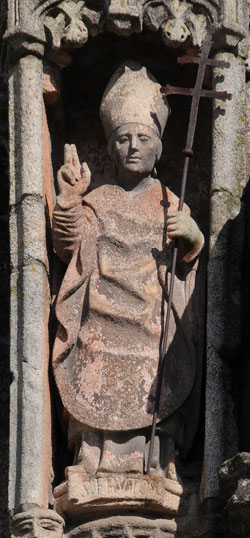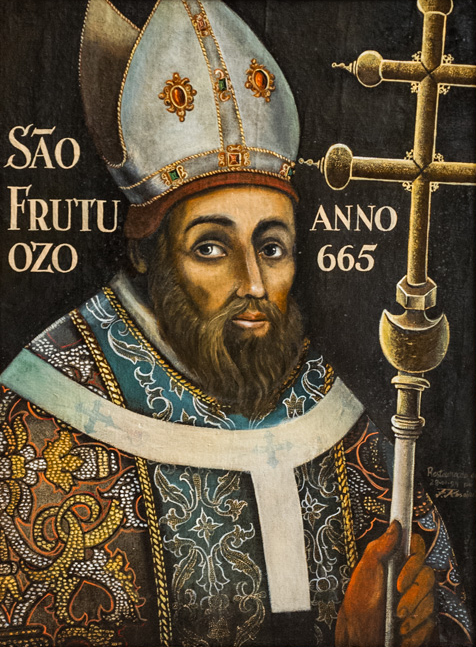The great founder of monasteries.
Fructuosus was born in the early 600s into a noble military family as the son of a Germanic general, within the Visigothic Kingdom, which is now the country of Spain. At a young age, he accompanied his father as he embarked on official trips over the estates.
In his youth he began feeling a deep calling to religious life.
After the untimely death of his parents, he inherited a substantial fortune. Rather than seek personal pleasure and power, he decided to dedicate his life to serving God and helping those in need and sought instruction from the Bishop of Palencia. Moved by the plight of the poor and oppressed, he selflessly distributed his family’s fortune to alleviate their suffering. He also used his resources to purchase freedom for those who were slaves.
He went on to study at the seminary in Palencia but began to feel disconnected from God. He made a drastic change and found his true calling as a hermit in the desert of Galicia. There he established a reputation for wisdom and holiness, attracting students and whole families. He constructed the monastery of Complutum in the El Bierzo region for his pupils and later founded 9 others, including one for women. Some were in Gallaecia while others were located further South in the Iberian Peninsula and even on the Island of Cadiz. All were set up under the Benedictine Rule.
His influence was so strong, the king imposed a limit on the number who could join.
He once again sought seclusion and planned to journey to the deserts of Egypt. The king learned of his intent, recognized the impact it would mean for his people, and ordered him to remain in the country. In turn Fructuosus asked for the release of political prisoners who had languished in prison for a long time, but the king did not respond.
He attended the Eighth Council of Toledo in 653 in place of Bishop Riccimer of Dumio and raised the issue of political prisoners which remained unsettled.
In 654, Fructuosus was consecrated as the Bishop of Dumio after the death of Riccimer, further solidifying his position as a spiritual leader.
2 years later, he attended the Tenth Council of Toledo and was made Archbishop of Braga in Portugal after the previous archbishop was remanded for the conditions and state of his monasteries.
He dressed so poorly as to be mistaken for a slave and even received a beating from a peasant which he barely survived.
Throughout his life he showed deep concern for maintaining the sanctity of family life and wrote a 2nd monastic rule enabling families to live together while leading a monastic existence.
His innocence and virtue were no security from the shafts of envy, but he overcame it with meekness and patience. He passed away on April 16, 665 with his deathbed consisting of a pile of ashes that he had placed before the altar.
He is the patron saint of Braga, Portugal.
His feast day is April 16.
For God’s Glory.


